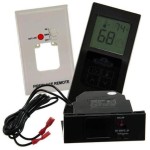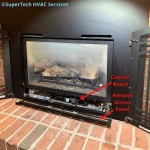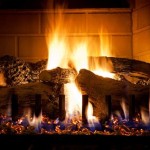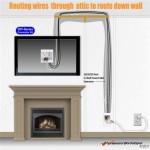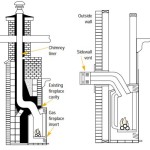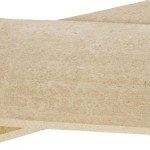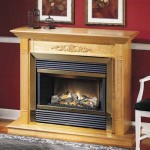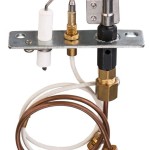DIY Fireplace Grate Blower: Enhancing Your Fire's Efficiency
A fireplace grate blower is a valuable addition to any fireplace, enhancing the efficiency of your fire and making it more enjoyable. While purchasing a ready-made blower is an option, building your own can be a rewarding and cost-effective project. This DIY project is within the reach of even novice handymen, requiring basic tools and materials commonly found in most households.
Understanding the Benefits of a Fireplace Grate Blower
A fireplace grate blower serves as a mechanical fan that forces air into the firebox, promoting more efficient combustion. This translates to several benefits for the fireplace owner:
- Increased Heat Output: The blower forces hot air from the fire out into the room, significantly increasing the heat output of the fireplace.
- Reduced Wood Consumption: By improving the combustion process, a blower helps burn wood more efficiently, requiring less fuel to achieve the same heat output.
- Cleaner Burning: The increased airflow provided by the blower results in a cleaner burn, producing less smoke and ash.
- Reduced Creosote Buildup: A cleaner burn also minimizes the build-up of creosote in the chimney, reducing the risk of chimney fires.
DIY Fireplace Grate Blower: Materials and Tools
Building a DIY fireplace grate blower requires basic materials and tools readily available at most hardware stores:
- Small, 12-volt DC Motor: This will provide the power to drive the fan. Look for motors designed for continuous operation with appropriate wattage for the size of your fireplace.
- Small, 12-volt DC Fan: Select a fan with a suitable airflow rate for your fireplace size. Make sure the fan is rated for the same voltage as the motor.
- 12-volt DC Power Supply: This will provide the power to the motor and fan. Choose a power supply with adequate amperage to handle the motor's power draw.
- Metal Sheet: This will be used to create the fan housing and to connect the motor and fan. Aluminum sheet metal is a good option due to its lightweight and durability.
- Fasteners: Screws, nuts, and bolts will be needed to assemble the blower components. Use stainless steel fasteners for longevity.
- Wire: Electrical wire will be required to connect the motor to the power supply and the fan to the motor.
- Heat-resistant Adhesive: Use an adhesive designed for high-temperature applications to secure the motor and fan assembly.
- Tools: You will need basic tools such as a drill, pliers, wire strippers, a screwdriver, and a metal-cutting saw.
Building Your DIY Fireplace Grate Blower
The following detailed steps guide you through the construction process of your DIY fireplace grate blower:
- Design the Housing: Plan the dimensions of the blower housing based on the size of your fireplace grate. Consider the size of the motor and fan to ensure adequate space for operation.
- Cut the Housing: Use a metal-cutting saw to cut the metal sheet to the dimensions you determined. The housing should have a shape that allows for airflow from the fireplace into the blower and from the blower out into the room.
- Mount the Motor: Secure the motor to the housing using heat-resistant adhesive and fasteners. Ensure the motor is positioned to allow for adequate airflow from the fan.
- Attach the Fan: Connect the fan to the motor shaft using a coupling or by attaching it directly to the motor shaft if compatible. Secure the fan to the housing using adhesive and fasteners.
- Wire the Components: Connect the wires from the motor to the power supply and the wires from the fan to the motor, ensuring proper polarity. Carefully insulate the wiring to prevent short circuits.
- Secure the Blower: Mount the blower on your fireplace grate using heat-resistant adhesive and fasteners. Ensure the blower is positioned to direct airflow into the room.
- Test the Blower: Connect the power supply to the blower and test its operation. Ensure the blower is functioning correctly and adjusting the fan speed if needed.
Safety is paramount when working with electricity. Always disconnect the power source before working on the blower. Exercise caution when using power tools to avoid injuries.

And Easy Fireplace Heater 5 Steps Instructables

Tube Fireplace Grate Heater For Zc Fireplaces

This Is A Great Small Area Heater For Smaller Fireplace Rated At Over 28 000 Btu Of Heat It Delivers Mor Blower Gas

Efficiency Of Fireplace Blowers And Fans New Fireplaces Trends Design Ideas Кирпичный камин Теплообменник Дизайн камина

Grate Heater Wikipedia

Learn More About The Diffe Styles Of Fireplace Grate Heaters Cast Iron Heat

Medium Double Row Tube Fireplace Grate Heater With Dual Blowers Hastyheat

Spitfire Tube Fireplace Heaters Heater Blower Heating And Plumbing

Tiny Stainless Grate Fanless Hastyheat

Masonry Fireplace Grate Heater With 10 Tubes
Related Posts

